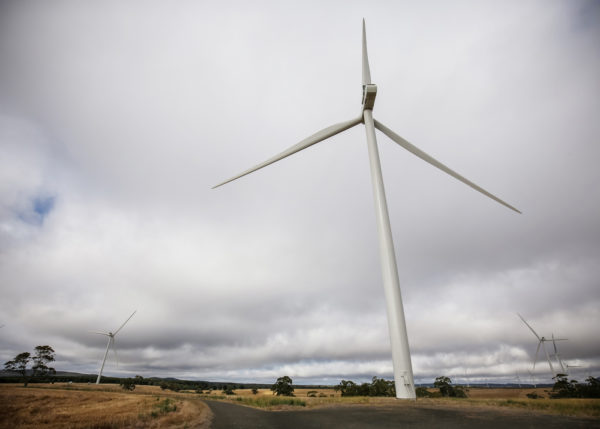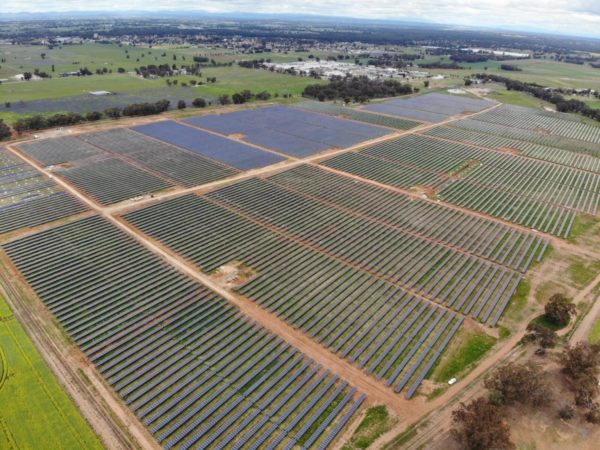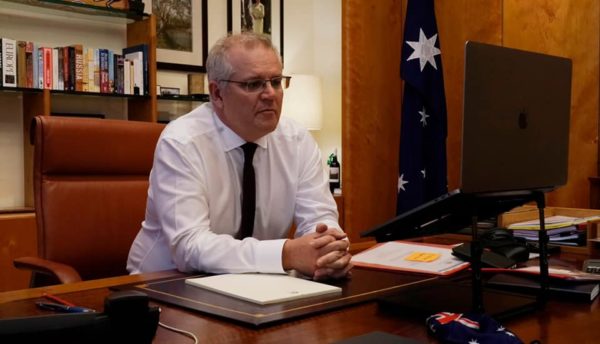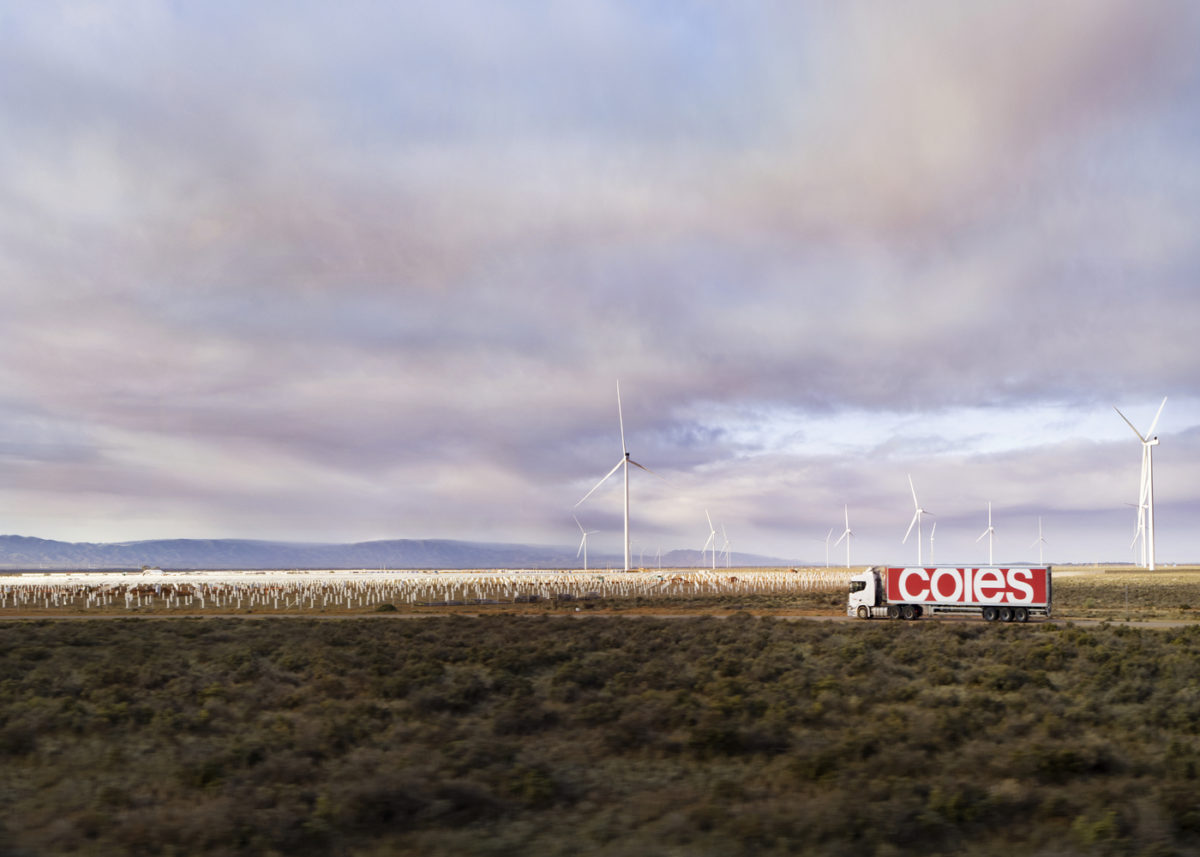Coles is on track to hit its target to be powered by 100% renewable electricity by 2025 after confirming on Friday it has signed power purchase agreements (PPA) to source clean energy generated at a string of wind and solar PV farms across Victoria, New South Wales, South Australia and Queensland.
The company said it has signed PPAs with Spanish renewables developer Acciona Energía and Australia’s biggest energy retailer Origin Energy and extended its existing agreement with French energy giant Engie to supply its estimated 2,500 stores and centres across the country with renewable energy generated at wind and solar PV farms throughout the National Electricity Market (NEM) jurisdictions.
Coles said by the end of the 2024-25 financial year its operations will be powered by clean energy drawn from several large-scale wind and solar PV farms, including Engie’s 119 MW Willogoleche and 46 MW Canuda wind farms in South Australia and Acciona’s 132 MW Mt Gellibrand Wind Farm in Victoria.
It said large-scale generation certificate (LGC) agreements have also been signed with several wind and solar farms which are currently being built.
These are likely to include Engie’s 215 MW Gregory and 200 MW Warhook solar farms being developed in central Queensland and the 120 MW Silverleaf Solar Farm the 120 MW Silverleaf Solar Farm near Narrabri in NSW. The projects are part of Engie’s plans to build a 2 GW portfolio of wind and solar farms in Australia.

Image: Coles
Acciona is also building its solar portfolio, having recently received approval from the Queensland government for a significant expansion of its $550 million Aldoga Solar Farm project being developed near Gladstone. Originally slated as a 250 MW project, the project will now reach a capacity of 600 MWp.
The latest agreements come after Coles pledged in March to have all of its sites fully powered by renewables by June 2025.
Coles chief sustainability officer Thinus Keev said the new PPAs mean that not only has the company created a clear pathway to achieving its 100% renewable electricity target on schedule but it has also set the plan in motion less than a year after announcing the target.
“Our team is very proud that less than a year after we announced our target to be 100% powered by renewable electricity by the end of the 2025 financial year, we already have agreements in place to meet this commitment which in turn supports the growth of renewable electricity in Australia,” he said.
“We’ve seen a lot of emphasis on setting targets for emission reduction, but it’s vital that business follows through on their sustainability goals.
“Our latest agreements with Origin Energy, Acconia Energia, and Engie mean we can now say with confidence that Coles will meet our targets for 100% renewable electricity by June 2025, which is an incredible achievement.”

Image: Pilecom
The new agreements add to the existing PPAs Coles had in place, including with global renewable power generation company Mytilineos. In June, the 30 MW Corowa Solar Farm in NSW became the first of three solar farms included in the agreement to be fully operational.
Coles has also signed PPAs with Lal Lal Wind Farms, Queensland state-owned clean energy company CleanCo and French renewables developer Neoen.
In addition to the renewable electricity target, Coles also has an ambition to reach net-zero greenhouse gas emissions by 2050.
“We have a responsibility to help create a better Australia for future generations,” Coles Group CEO Steven Cain said.
Coles’ commitment means that the country’s three biggest supermarket chains will all source their power from renewable energy.
Woolworths has announced a goal to be fully powered by renewables by 2025 while Aldi announced in June it had achieved its commitment to power its operations with 100% renewable electricity six months ahead of schedule.
The transition was achieved using a three-pronged approach comprising of on-site generation via an extensive network of solar panels across stores and distribution centres, offsite generation through PPAs with Tilt Renewables’ 336 MW Dundonnell Wind Farm in western Victoria and Ratch-Australia’s 226 MW Collector Wind Farm in southern NSW and the acquisition of market renewable energy certificates.
“Aldi Australia’s stores, offices and warehouses are entirely powered with 100% renewable electricity,” the company said in an emailed statement.
“We are proud to be the first and only big Aussie supermarket to have achieved our renewable electricity goal earlier this year with the milestone reducing our carbon emissions by 85%.“
Greenpeace Australia Pacific REenergise campaign director Lindsay Soutar said Coles’ latest announcement signified the clean energy momentum building in the corporate sector.
“Coles’ announcement that it has cut deals to source renewable power through wind and solar projects is a sign of the growing corporate demand for renewable energy,” she said.
“Major brands have a critical role to play to use their buying power to bring even more new wind and solar farms online.
“This week the International Energy Agency has warned we must triple our spending on renewables to maintain a safer climate, and Australian businesses like Coles have a crucial role to play.”

Image: Facebook
Soutar said there has been a flurry of net-zero emissions reduction commitments from the business sector in recent weeks in the run-up to the COP26 Climate Summit in Glasgow. She said the renewable momentum from businesses is putting pressure on the federal government and Prime Minister Scott Morrison to commit to a stronger emissions reduction target.
“As the federal government dithers over a net-zero target, business leaders are rushing towards renewables,” she said.
“Australian companies and manufacturers know that cheaper, cleaner renewable energy is already powering the country, and are making smart investments to shore up their business for the future.
“Australia’s corporate sector has clearly indicated that it wants strong, decisive emissions reduction, and the Federal Government must develop policies that support investment and growth of renewables.”
This content is protected by copyright and may not be reused. If you want to cooperate with us and would like to reuse some of our content, please contact: editors@pv-magazine.com.









By submitting this form you agree to pv magazine using your data for the purposes of publishing your comment.
Your personal data will only be disclosed or otherwise transmitted to third parties for the purposes of spam filtering or if this is necessary for technical maintenance of the website. Any other transfer to third parties will not take place unless this is justified on the basis of applicable data protection regulations or if pv magazine is legally obliged to do so.
You may revoke this consent at any time with effect for the future, in which case your personal data will be deleted immediately. Otherwise, your data will be deleted if pv magazine has processed your request or the purpose of data storage is fulfilled.
Further information on data privacy can be found in our Data Protection Policy.